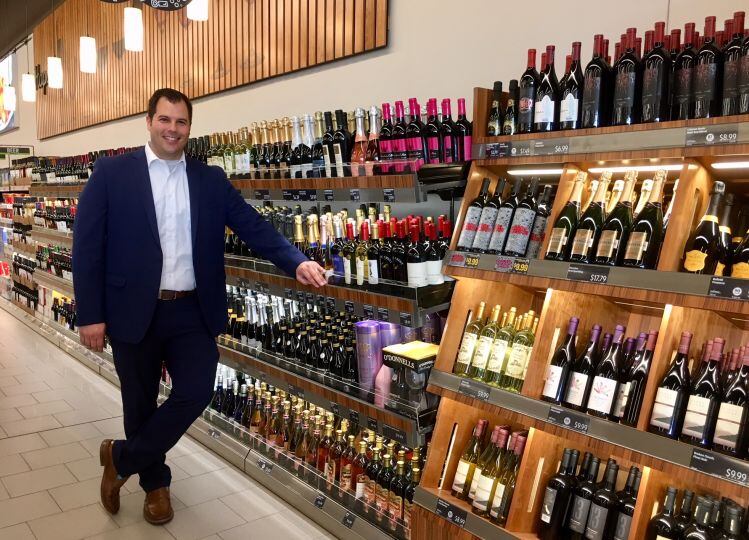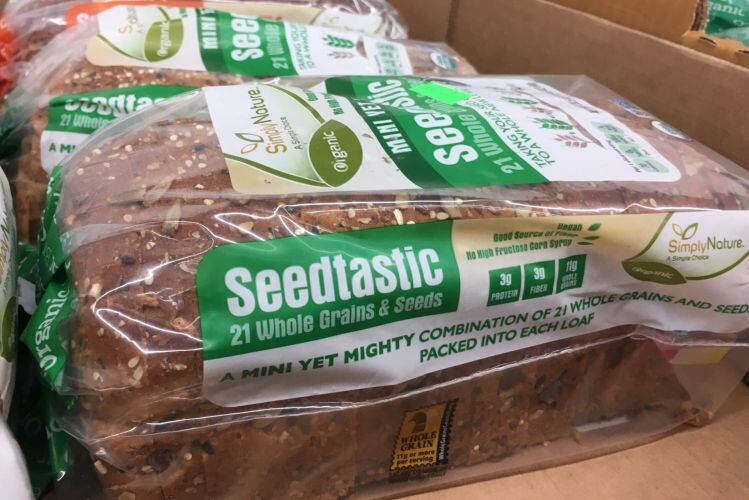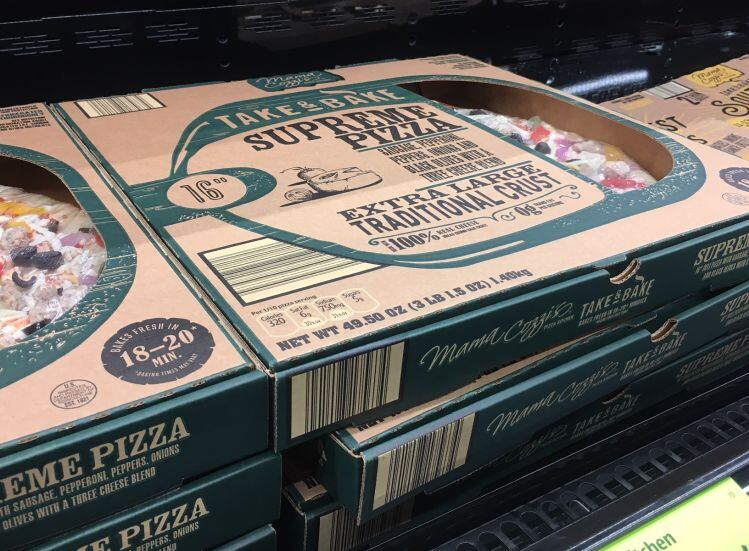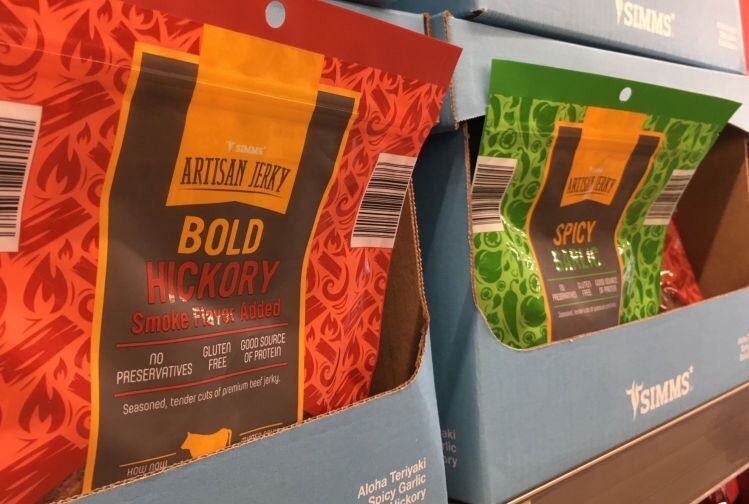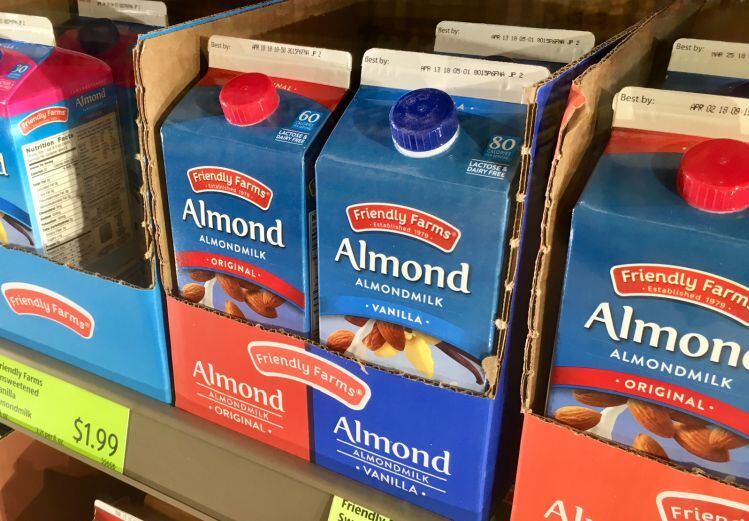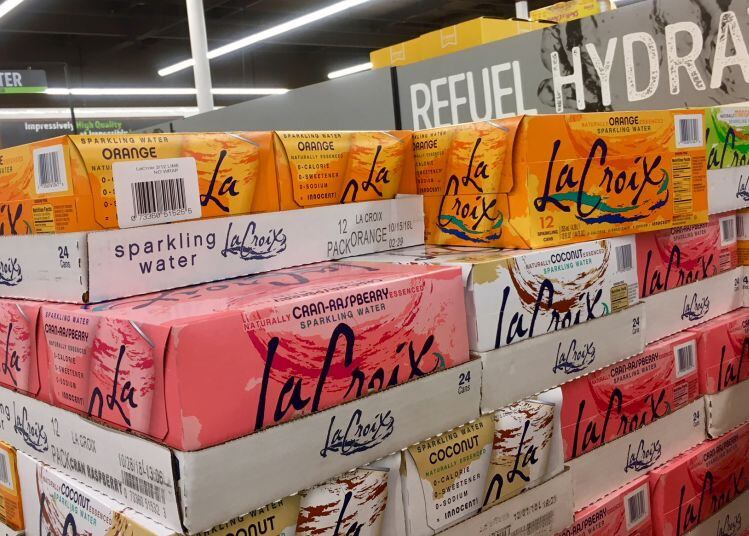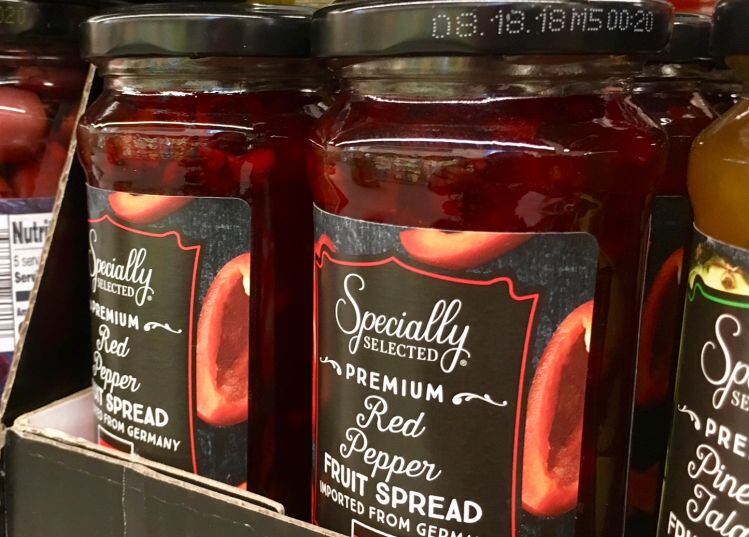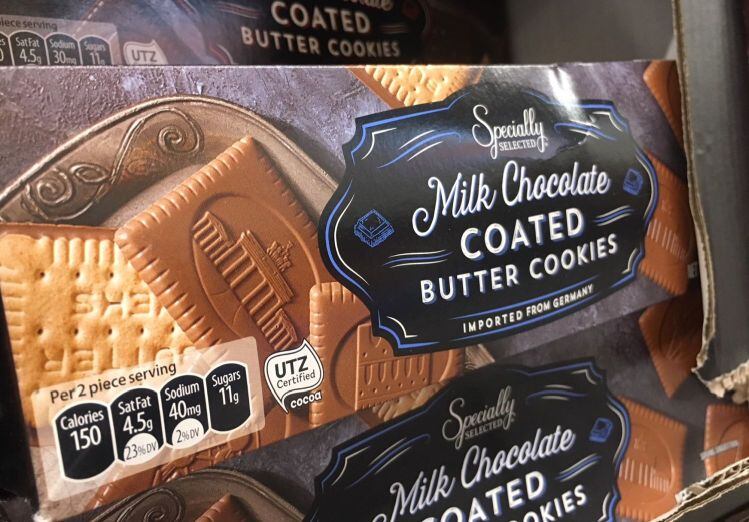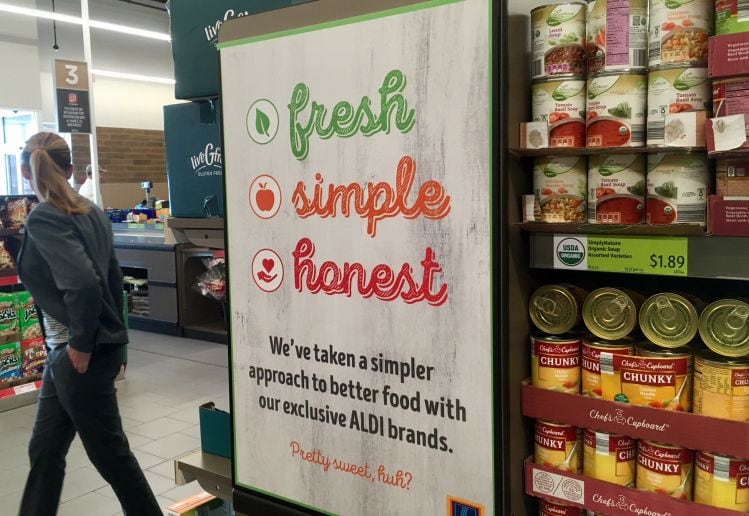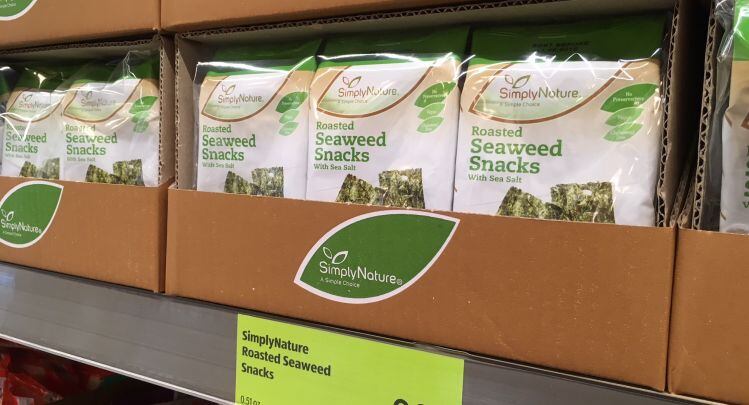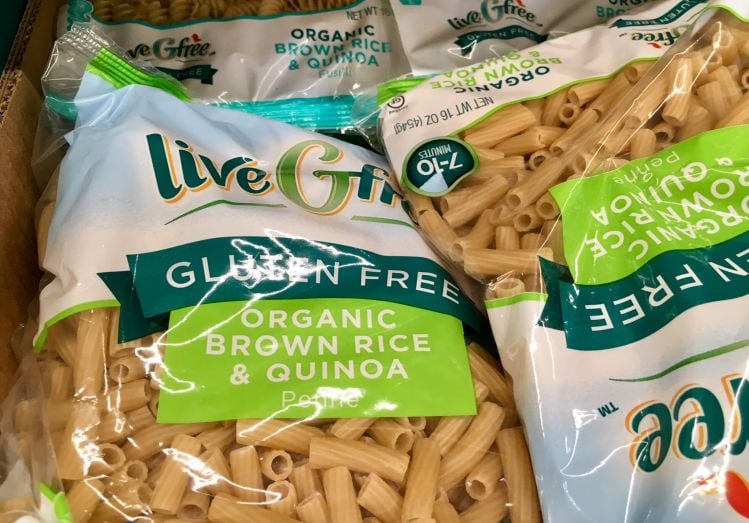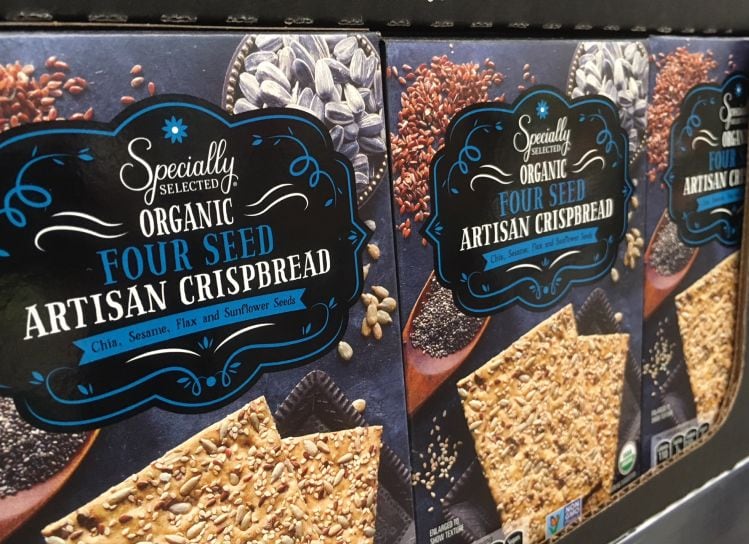Which is one of many reasons why ALDI is able to charge up to 50% less than the competition for its wares, and is one of the fastest growing food retailers in the US, with US sales doubling in the past five years on the back of aggressive store openings and robust same store sales growth, driven by double-digit increases across several categories including produce, fresh meat, organic foods and wine.
Like Trader Joe’s* ALDI’s strength comes from its high-quality, but limited assortment (around 1,400-2000 SKUs according to industry sources vs the typical 30,000+ in a regular supermarket, although the company won’t give a precise figure), of primarily private label products at low prices, made possible by low overheads and a no frills approach.
“When you sell a superior product at a way better price, you should be successful,” added Cindel, who gave FoodNavigator-USA a tour of the Monrovia store last week.
“Everything is designed around simplicity, we don’t have 30 different kinds of ketchup and 20 different aisles to navigate. The selling space is around 12,000sq ft. Basically, it’s just easy to shop here.”
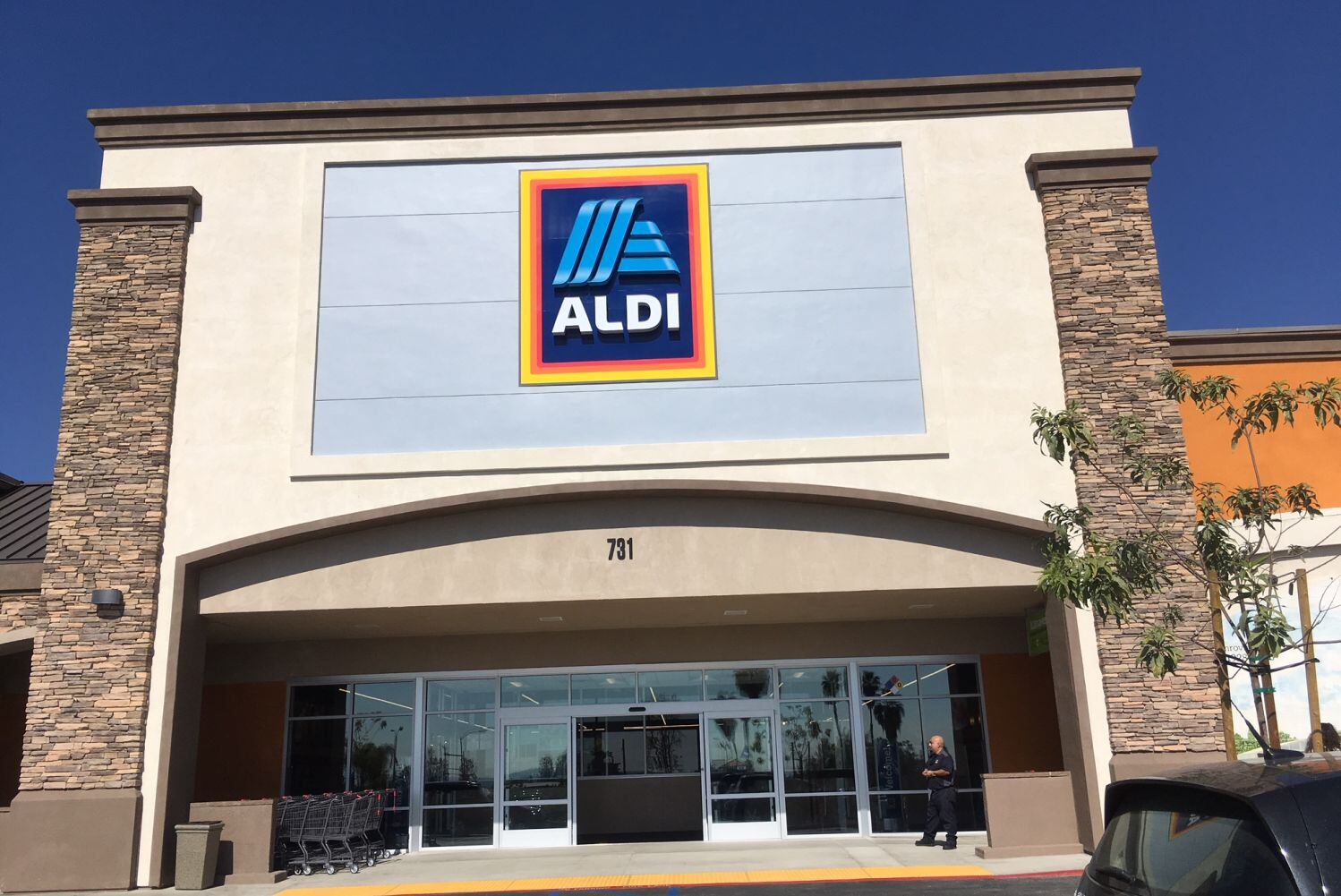
Founded by the Albrecht family, ALDI opened its first store in Germany in 1961, and entered the US market – where it now operates more than 1,750 stores in 35 states – in 1976.
Headquartered in Batavia, Illinois, ALDI US plans to increase its store count to 2,500 by 2022, says the firm. “By then, we will help as many as 100 million people save money on groceries every month. This year alone, we expect to open 150 additional stores in markets such as California, Texas and the mid-Atlantic region.”
The retailer, which struck a deal with Instacart last year (which enables shoppers to shop online and have their orders picked and delivered by a personal shopper), says the partnership has exceeded its expectations: “Our goal is to make shopping smart, fast and easy, however you shop. Our Instacart pilot program launched in Los Angeles, Dallas and Atlanta in August 2017, and has exceeded our expectations. Customer response has been overwhelmingly positive, and we plan to add more cities.”
'No one wants to pay more than they have to for groceries...'
As for who shops at ALDI, a pretty broad demographic, added Cindel (as Chobani president Tim Brown observed last year at FOOD VISION USA, “You see just as many BMWs and Mercedes at ALDI parking lots as you do Chevies and Fords”).
“Who shops at ALDI? You, me, anyone who eats food. I don’t care if you drive a Ferrari or a beat up whatever, I want you to shop here, whatever your income level or circumstances. No one wants to pay more than they have to for groceries. Pretty much every single item I shop for is at an ALDI store and I can tell you that’s the honest truth.”
Indeed, as Hartman Group pointed out in a report back in 2015, “The ALDI proposition is not one that uniquely orients to struggling, down-market consumers. In fact, its primary shopper base looks virtually identical to Walmart’s.”
And since then, it has been aggressively remodeling stores to introduce brighter, friendlier signage, and higher ceilings and healthy checklanes; ditched certified synthetic colors, added MSG, and partially hydrogenated oils from its entire private label range; expanded its Specially Selected premium ranage, LivGfree gluten-free range and its SimplyNature natural and organic range (which exclude 125 ingredients such as potassium benzoate, aspartame, high fructose corn syrup and TBHQ) and introduced scores more organic products.
It has also experimented with introducing on-trend regional brands where the volume may not yet warrant developing a private label product, but local interest warrants further exploration, accepts Apple Pay, Android Pay and other forms of contactless payment, and has teamed up with Instacart to enable shoppers in Los Angeles, Dallas and Atlanta to order online via trial that has "exceeded expectations."
‘We’re removing every possible barrier to someone that says, I don’t shop at ALDI because…’
In other words, said Cindel, “We’re removing every possible barrier to someone who says, ‘I don’t shop at ALDI because… they don’t stock organic babyfood, I’m a vegetarian, I want gluten free, I want to shop online’ and so on. We have all of these things now, and we’re going where shoppers are going.
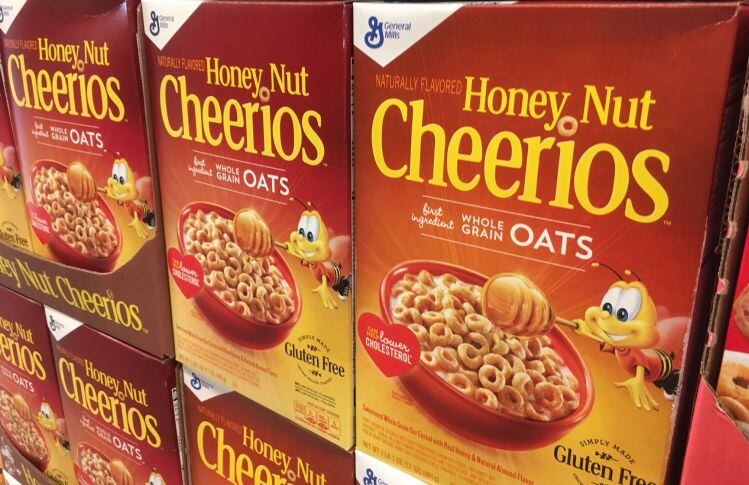
“So that means more fresh produce, more fresh meat, more dairy, and more perimeter items, and a partnership with Instacart that’s been exciting for us. It’s become very popular and allowed us to get into the game at a time when online grocery is in its infancy, but has the potential to grow very fast."
He added: “When I started with ALDI in 2005 you’d have full pallets of canned goods and full stacks of white bread and now we have gluten free and naan breads and French bread and whole wheat because customers are demanding that and we’re listening.”
Now that doesn't mean ALDI stores have transformed into a foodie's fantasy - there is still a certain sterile quality to the stores, no fresh prepared food counters, salad bars, deli counters or rotisserie chicken - but they are changing.
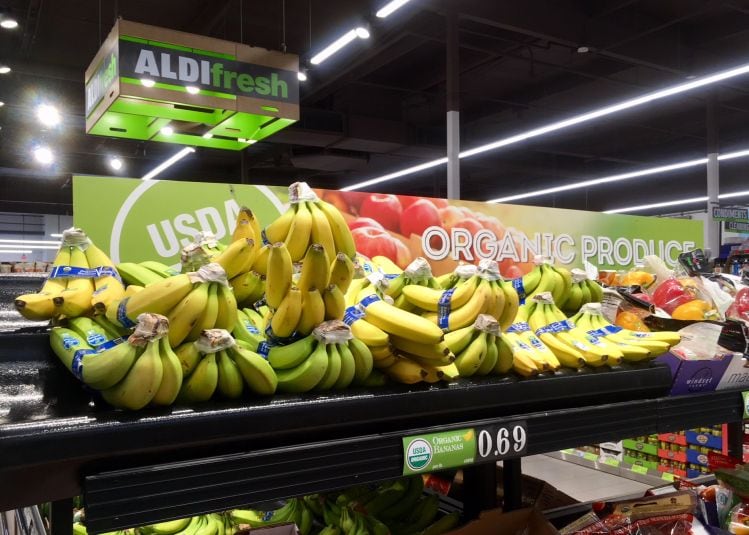
‘We save a little bit on ten thousand things’
As for the low overheads, it’s a cliché – spend your company’s money as if it is your own – but it’s also etched into the mindset of every ALDI employee, said Cindel.
“Whether it’s a landscaping contract or a product we’re selling, all the employees are wired the same way. If I have a cracked floor tile, and I need to get it replaced, I’ll do my due diligence to get a good price and everyone has that same mindset here, we save a little bit on ten thousand things.
“We have a reputation - whether it’s our corporate buyers, or our divisional offices - we’re tough but fair. We keep overheads low, product quality high and pass the savings onto our customers [the chain also prides itself on ‘paying on time every time’].”
ALDI suppliers, meanwhile, don’t pay ‘unwarranted’ deductions, or rebates, coupons or promotions, marketing costs, food shows or slotting fees, in-store displays or DSD [products are delivered in full pallets to ALDI warehouses and ALDI delivers goods to stores].
“Behind the scenes of traditional grocery stores, everything you do gets added to the cost of the product,” observed Cindel. “Take bags. They were never ‘free.’ You always paid for the bags, they were just built into the price of the foods in the stores. At ALDI [which has always charged consumers for bags] we don’t do that. It’s the same with a deli or a pharmacy, every time you buy a bag of chips – operating a deli or a pharmacy is built into the price of that – but not at ALDI.”
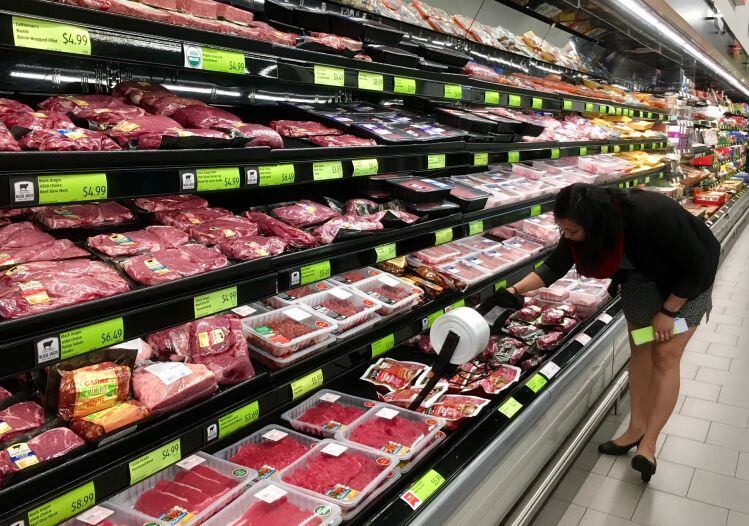
Display ready cases
The speed and efficiency with which ALDI gets products onto shelf is also key to its low prices, with all product supplied in printed, easy to open ‘display ready’ cases that can be dropped straight onto shelves.
“Take this,” said Cindel, grabbing a display-ready case of protein bars. “How many times does this product get touched by the time a customer picks it off the shelf? It arrives at our distribution center, on a full pallet of display-ready cases and is parked in a slot with a double pallet jack. Our selectors will then take a case and put it on a [mixed] pallet and our store employees will take it off that pallet and put it on the shelf, and that’s it.
“You won’t see ALDI employees hand-packing individual salt sellers from cases and putting them on shelf. When a case is empty, we pull and crush the cardboard and we’ve negotiated with our recycling partners to recycle the cardboard and get revenue back.”
When it comes to pricing, he said, “We do things like produce picks of the week and highlight things that are new or seasonally relevant, but generally we operate a EDLP pricing model. You don’t have to worry about what day of the week you come in on, or whether you have to have a coupon, or a loyalty card, or you have to buy 15 packs of bacon to get a discount. You can buy one pack, any time, and it’s always incredible value.
“If you are hell-bent on having a certain brand you may not find that, but what we’re offering is the same quality or better, and we tested for that incredibly carefully.”
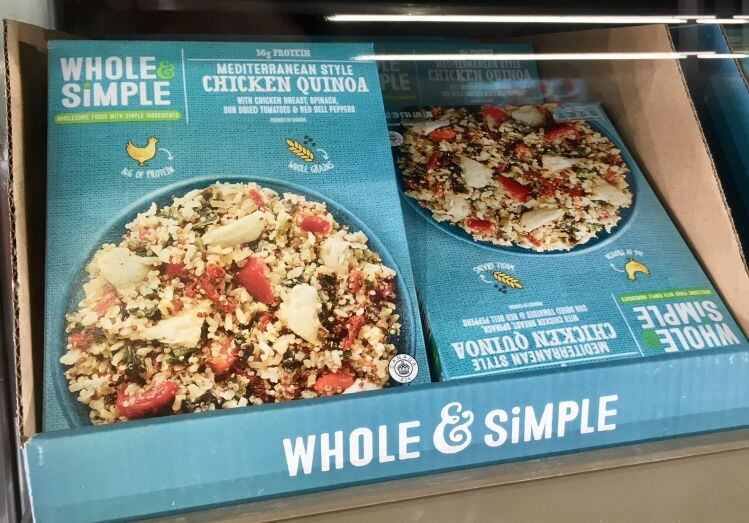
Central purchasing, with regional input, flexibility
Ranging decisions are made centrally with regional input, meanwhile: “We have our corporate buying office out of Chicago and they make the decisions as far as our core products, things we’ll carry everywhere, such as dry roasted peanuts. But we have a bigger range of wines here in California, for example.
“Our Moreno valley facility services our 53 stores in southern California and we provide local input to the central buying team, although California is a little different in that we do have some regional buyers. Our job is to talk to customers and identify if there is anything in the market that we have to have – so 805 beer is something we carry here specifically – but not necessarily in the rest pf the country.”
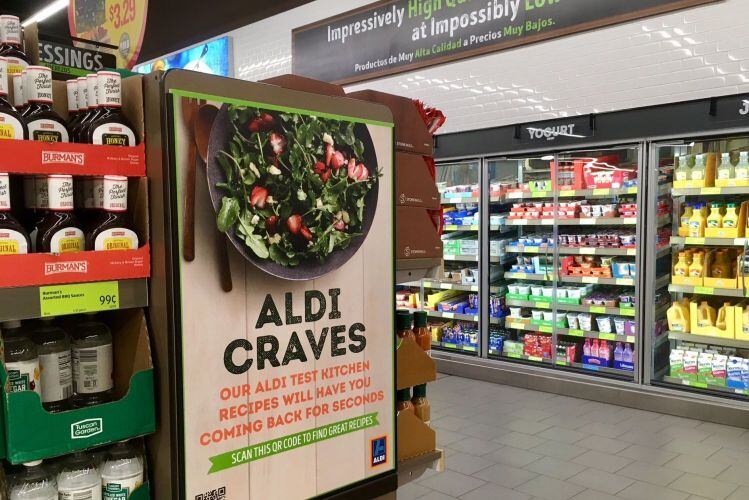
‘We’re about 90-95% private label’
As for the mix between brands and private label, he said: “We’re about 90-95% private label. Wherever possible we try to do our own brands because we feel so strongly that our corporate buying department can match or exceed the quality of national brands. But there are some items that are iconic – so if you’re looking for a small candy this size that’s red, green and blue, you’re looking for an M&M, not a Choceur [ALDI private label] chocolate drop – and we don’t fight that.
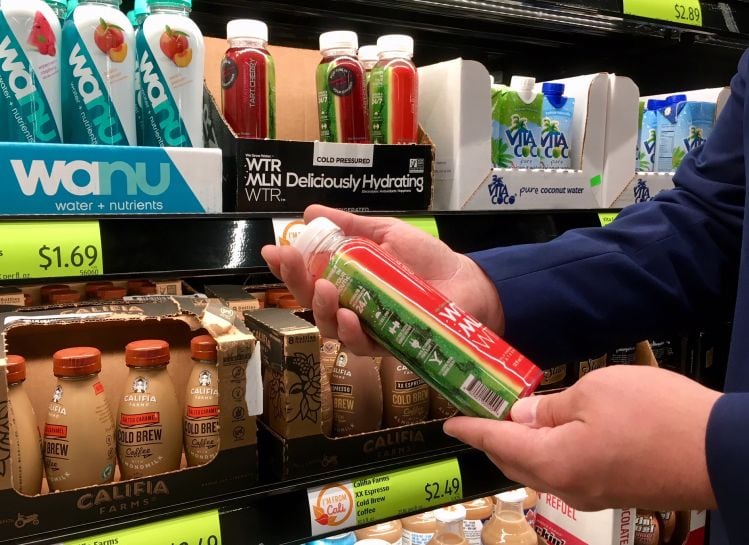
“In other cases, we maybe just don’t have the volume across the country to do a private label, but we want to try something regionally [the Monrovia store stocks veggie snacks from Rhythm Superfoods, and single serve beverages such as Wanu, Califia Farms cold brew, and WTRMLN WTR] so they can bring in items we can try out.
“If they sell well enough, other divisions may pick them up and then it may open the door for us to go into private label [something of a double-edge sword for the suppliers in question, who may be able to grow with ALDI and then find themselves replaced by a private label equivalent for a category they have built, unless they themselves become a private label supplier to ALDI].”
But go into partnership with ALDI, he said, and you can shift some serious volume: “We’re going to stock the best quality product and you are going to give us a good price, because we’re going to drive a ton of volume. We’ve got 1,750 stores in the US and yours is the only product in that category we are going to sell.”
*Aldi Nord is owner of Trader Joe’s chain, while Aldi Süd operates as Aldi.
